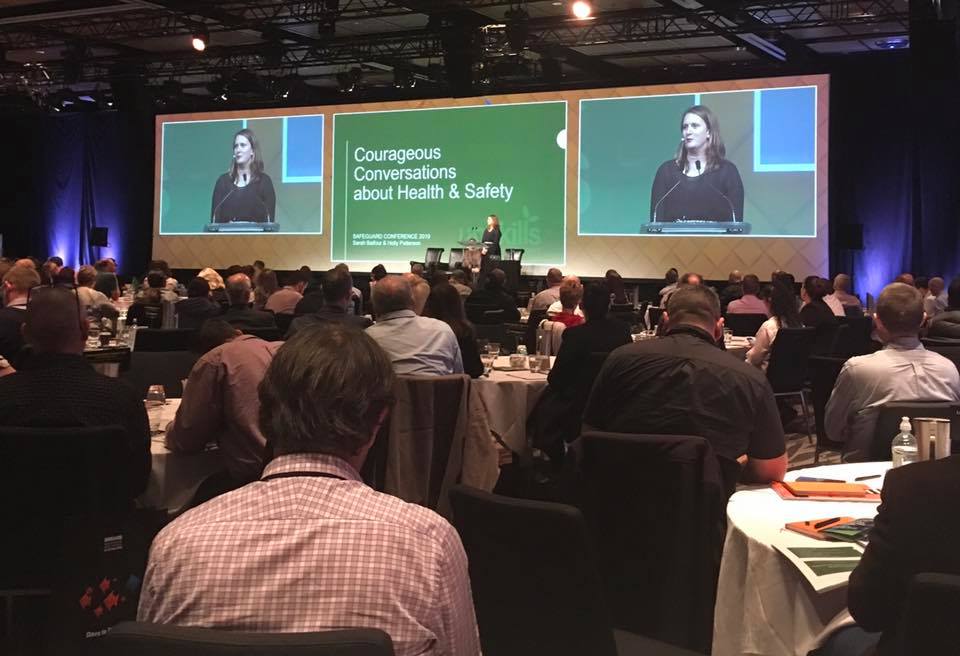Iti te matakahi, pangāia
Ki te tōtara pakaru ai
The wedge may be small but it will split the greatest totara
Do you ever get that horrible feeling in the pit of your stomach, accompanied by a sense of dread at the thought of addressing a difficult issue with someone? The time has come for you to have what The Harvard Negotiation Project defines as a courageous conversation.

The art of holding courageous conversations was the topic of Sarah Balfour and Holly Patterson’s skills session at the Safeguard National Health and Safety Conference 2019 on 28 May at Sky City Convention Centre in Auckland. Upskills can now make this learning available to clients either as a stand-alone course or as part of the current course offering.
We can help you to become aware of what can get in the way of courageous conversations taking place at all layers of your organisation. Creating the right environment in which open communication can take place is key. Once you understand how to remove the blockages, Upskills can provide a framework in which you can manage all the aspects of courageous conversations. Start to make the change in your organisational culture.
So what is a courageous conversation?
Is it just a way of sugar coating negative feedback? Jargon for feelgood interactions where everybody walks away thinking everything’s fine? Or a genuine way to have a tough conversation?
Conversations require the participants to both talk and listen, which is key. Managers need to initiate lots of courageous conversations. Importantly, they also need to be approachable by making it safe for others to have courageous conversations with them.
‘Courage’ comes from the Latin, cor, – meaning heart. This stuff matters. These types of conversations aim to construct, rather than destruct relationships. To succeed they must be open, authentic and contain only truthful dialogue in an atmosphere of trust and respect.
A courageous conversation can be defined as:
- Talking, but also listening, and saying nothing
- Staying curious, avoiding the blame game
- Inviting and acknowledging diverse perspectives
- Focusing on behaviour specifics rather than the person or character
- Having self-awareness and clarity about your own intentions
- Avoiding hot buttons and conflict
The Upskills course content will unpack this for you and your learners, relating it directly to your business and how success might look for your organisation. So get in touch with Holly Patterson or Sarah Balfour to find out more. Or you could just do nothing…
Problems with avoidance
Research indicates that leaders avoid tough conversations due to lack of courage, lack of skills and the cultural norms we are all bound by – being nice and polite.
Why does it matter that we’re not having the courageous conversations at work? In her book, The Fearless Organisation, Amy Edmondson warns, ‘an organisation with blind spots, no go zones and silence where there should be dialogue, creates the conditions for psychological and physical harm’.
Next steps
We challenge you to walk towards the courageous conversation and stay with it. If we were fortunate enough to have you along to our presentation at Sky City, you will now have the framework in which to manage it. Others in your organisation may be unaware of the issues discussed. We challenge you to bring your learning back to your people. Inspire them, challenge them, debate with them. Download our free takeaways to help you not only have courageous conversations but to make them count.
If you were not able to attend our presentation and want to know more, contact us to discuss how we could help bring about change in your organisation.





